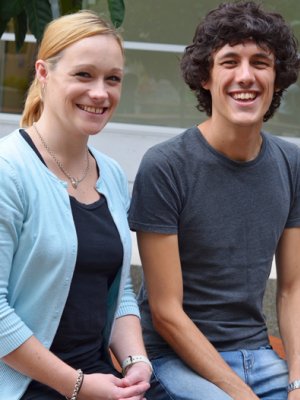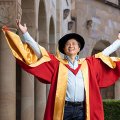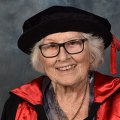
University of Queensland Institute for Social Science Research (ISSR), research assistants Renee Zahnow and Andrew Clarke have both won School of Social Science prizes for their Honours theses.
Supervised by Dr Rebecca Wickes, Ms Zahnow, won the John Braithwaite prize in Criminology for her thesis entitled, 'Examining changing neighbourhood contexts and their impact on resident perceptions of disorder'.
Ms Zahnow said a significant finding of her research on Brisbane's urban communities, was that people believed there was more disorder than there actually was, specifically when their neighbourhood had Indigenous residents.
"This finding speaks to the underlying implicit bias, held by many Australians, associating Indigenous Australians with physical and social disorder," she said.
Ms Zahnow now plans to start her PhD in criminology in March 2012.
"My PhD research will be in the broad area of community resilience and will examine crime trends in Brisbane suburbs over a 15 year period, from 1996 to 2012," she said.
In doing this research she aims to show whether neighbourhoods with higher levels of social organisation experience fewer incidences of crime and disorder after an exceptional event such as the Brisbane floods.
Mr Clarke won the John Western Sociology Prize from The Australian Sociological Association (TASA) for his thesis entitled, 'Governing the dieting self: conducting weight loss via the Internet'.
Supervised by Dr Lynda Cheshire, Mr Clarke also won a 2011 TASA Honours award for the highest overall result in Honours sociology at The University of Queensland.
Mr Clarke said one of the notable results of his study was the opportunity to show how norms and imperatives, pertaining to bodyweight and diet, are translated into a particular weight loss program or a set of practical techniques and strategies.
The assumptions of people's conclusions can then render the voluntary pursuit of such norms a practical possibility, he said.
"A research interest I would like to pursue would be, how expert knowledge is employed in attempts to influence or direct the ways in which individuals conduct themselves possibly in the context of dispute resolution," Mr Clarke said.
Media: Honor Morton (07 3346 7806 or honor.morton@uq.edu.au)













